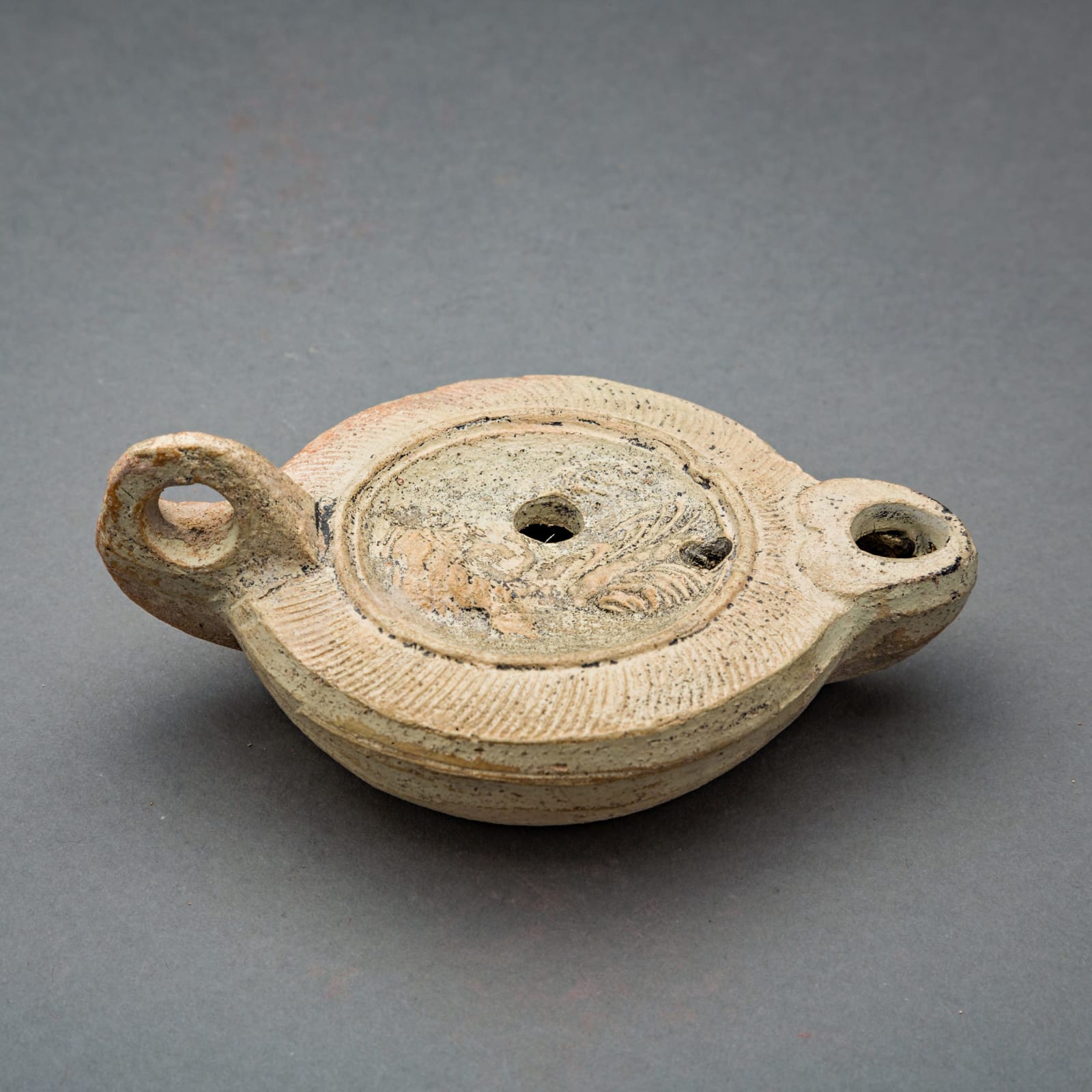Roman Oil Lamp Depicting Empress Julia Domna, 2nd Century CE
Terracotta
10.2 x 2.5 x 9.5 cm
4 x 1 x 3 3/4 in
4 x 1 x 3 3/4 in
AM.0406
Empress Julia Domna was the second wife of the Roman emperor Septimius Severus (reigned 193-211) and a powerful figure in the regime of his successor and their son, the emperor...
Empress Julia Domna was the second wife of the Roman emperor Septimius Severus (reigned 193-211) and a powerful figure in the regime of his successor and their son, the emperor Caracalla. Julia was a Syrian (Domna being her Syrian name) and was the daughter of the hereditary high priest Bassianus at Emesa (now Homs) in Syria and elder sister of Julia Maesa. Domna gathered about her in Rome a group of philosophers and other intellectuals whose activities are best known through the writings of Philostratus. After Severus' death, the murderous rancor of her two sons, the joint emperors Caracalla and Geta, culminated in the assassination of Geta by Caracalla in her presence. When Caracalla (reigned 211-217) was on campaign, he left her in control of most of the civilian administration, demonstrating the significant status of this woman in a society dominated by men.
A lamp such as this might have lit homes when the Roman Empire ruled the world. A metaphor of joy and prosperity, for hope, for life itself, lamps have illuminated the path of civilization for centuries. They have guided great thoughts through the night, stood vigil with lonely passions. In the presence of this simple object, we are in touch directly with a vanished world, with the people once warmed by its glow. Today it remains as an enduring symbol of man's desire to conquer the darkness.
A lamp such as this might have lit homes when the Roman Empire ruled the world. A metaphor of joy and prosperity, for hope, for life itself, lamps have illuminated the path of civilization for centuries. They have guided great thoughts through the night, stood vigil with lonely passions. In the presence of this simple object, we are in touch directly with a vanished world, with the people once warmed by its glow. Today it remains as an enduring symbol of man's desire to conquer the darkness.



